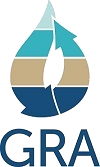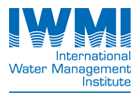Presentations 2016
Boy Roura, Merce
Presentation Title
Fate and persistence of emerging contaminants and multi-resistant bacteria in the continuum surface water - groundwater (the PERSIST Project)
Institution
Catalan Institute for Water Research – ICRA, Emili Grahit, 101- 17003 Girona, Spain
Video
Video Not Available
Presentation
Profile Picture
Picture Not Available
Abstract
The PERSIST project aims to increase the knowledge on the behavior of a selection of targeted pharmaceutical products (as EOCs) and antibiotic multi-resistant bacteria (MRB) in both surface water and groundwater bodies, as they represent a growing public health concern. Residual pharmaceutical products in the environment may arise from wastewater effluent outlets and intensive manure application as fertilizers in agricultural areas. MRB are transmitted to ecosystems directly from wastewater or developed in-situ due to the occurrence of residual antibiotics. However, the fate and transfer of EOCs and MRB in both surface water and groundwater bodies are not well known yet; that is, the hydrological processes that govern their migration at a field scale. The study is carried out on two complementary hydrogeological field sites: the Vistrenque basin (SE France) and the Empordà basin (Catalonia, NE Spain). The investigation will be carried out at the catchment scale, in a surface water/groundwater continuum, as well as at the laboratory scale where soil columns will be used to evaluate the transport properties of selected pharmaceuticals. The results will be useful to delineate guidelines for groundwater pollution prevention and aquifer restoration, contributing to the development and implementation of EU directives for EOCs occurrence in water bodies.Preliminary results are presented on the occurrence of EOCs on the Vistrenque and Empordà alluvial aquifers. On the Vistrenque basin, an overall survey including 52 sampling sites, 21 molecules were analyzed including, carbamazepine and its degradation product, 6 betablockers, 11 antibiotics and 1 antidiabetic molecule. Only 4 of the 21 molecules were not detected in groundwater at all: Flumequine, Ciprofloxacine, Trimethoprim, and Atenolol. The remaining 17 molecules showed detection frequencies varying from 4% to 77%. The most detected molecules, with detection frequencies above 20%, are Carbamazepine (77%) and its degradation product (42%), Erythromicine (70%), Roxithromycin (46%), Sulfamethoxazole (31%), Ofloxacin (31%) and Spiramycin (23%). The mean individual concentrations are on the order of a few ng/L. Carbamazepine reaches tens of ng/L and in a few locations attains a few hundreds of ng/L.On the Empordà basin area, analyzes focused on antibiotics in groundwater (n=47) and surface water (n=7). 11 out of 53 analyzed antibiotics were found in groundwater, corresponding to four different chemical groups: fluoroquinilones, macrolides, quinolones and sulfonamides. The most detected compounds were Ciprofloxacin, Enrofloxacin, Norfloxacin, and Sulfamethoxazole. Sulfamethoxazole was detected in 80% of the groundwater samples with mean concentration of 6.1 ng/L and highest concentration of 28.6 ng/L. Ciprofloxacin was observed in 45% of the samples, with mean concentration of 77.2 ng/L and highest concentration of 298.3 ng/L. In surface water samples, five different antibiotics were quantified, being Sulfamethoxazole and Ciprofloxacin the most detected ones.To better constrain the sources and transfer processes of these compounds, their occurrence will be correlated to environmental tracers allowing to define the origin and residence time of water sample, and to set the hydrological processes that control their transport. Results from complementary column experiments will provide transport parameters, support field evidences, and allow the results to be up-scaled with the aim to model the fate and migration of EOCs at the catchment scale.Acknowledgements: This study is part of the PERSIST project funded by the EU Water JPI.
|












